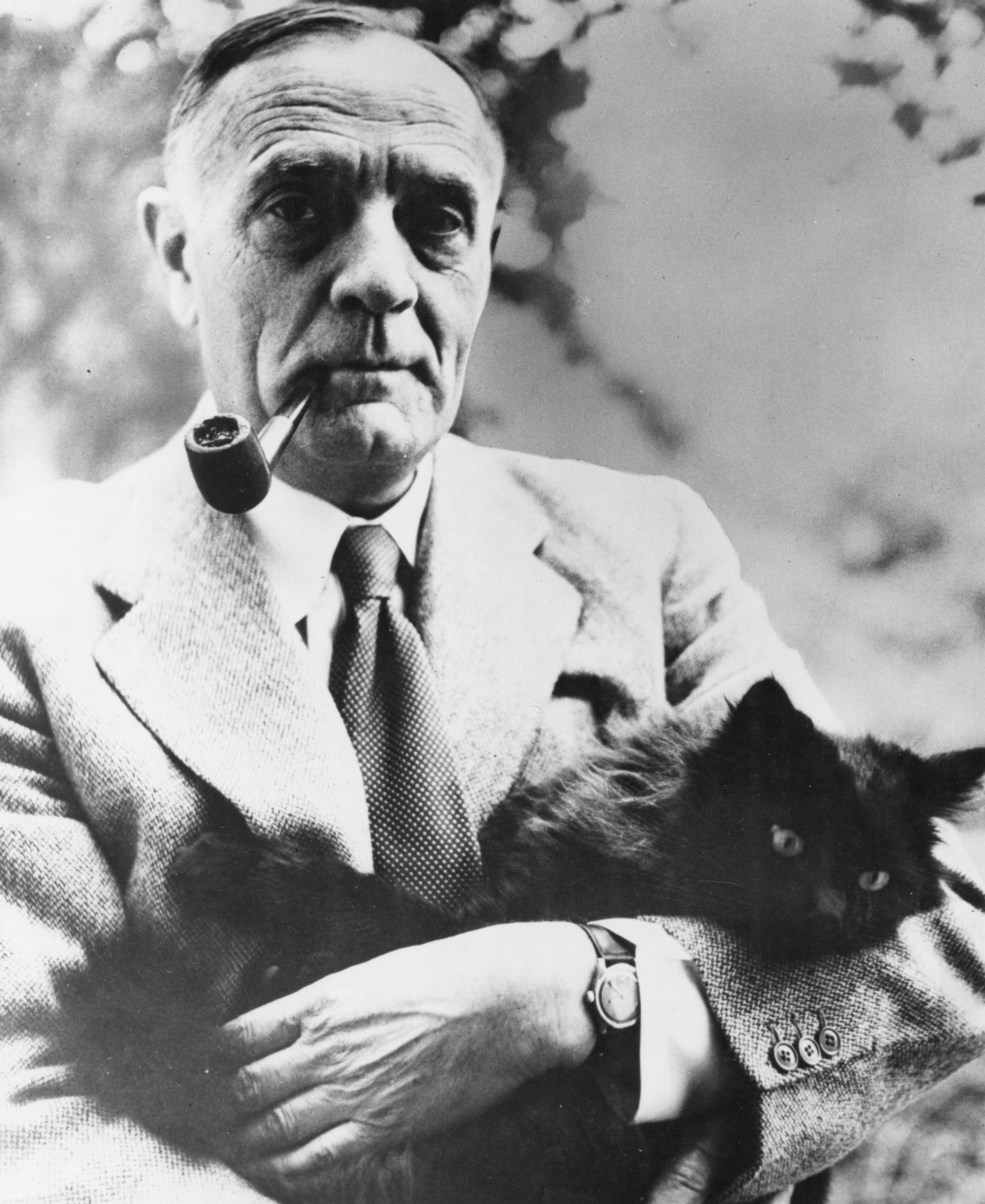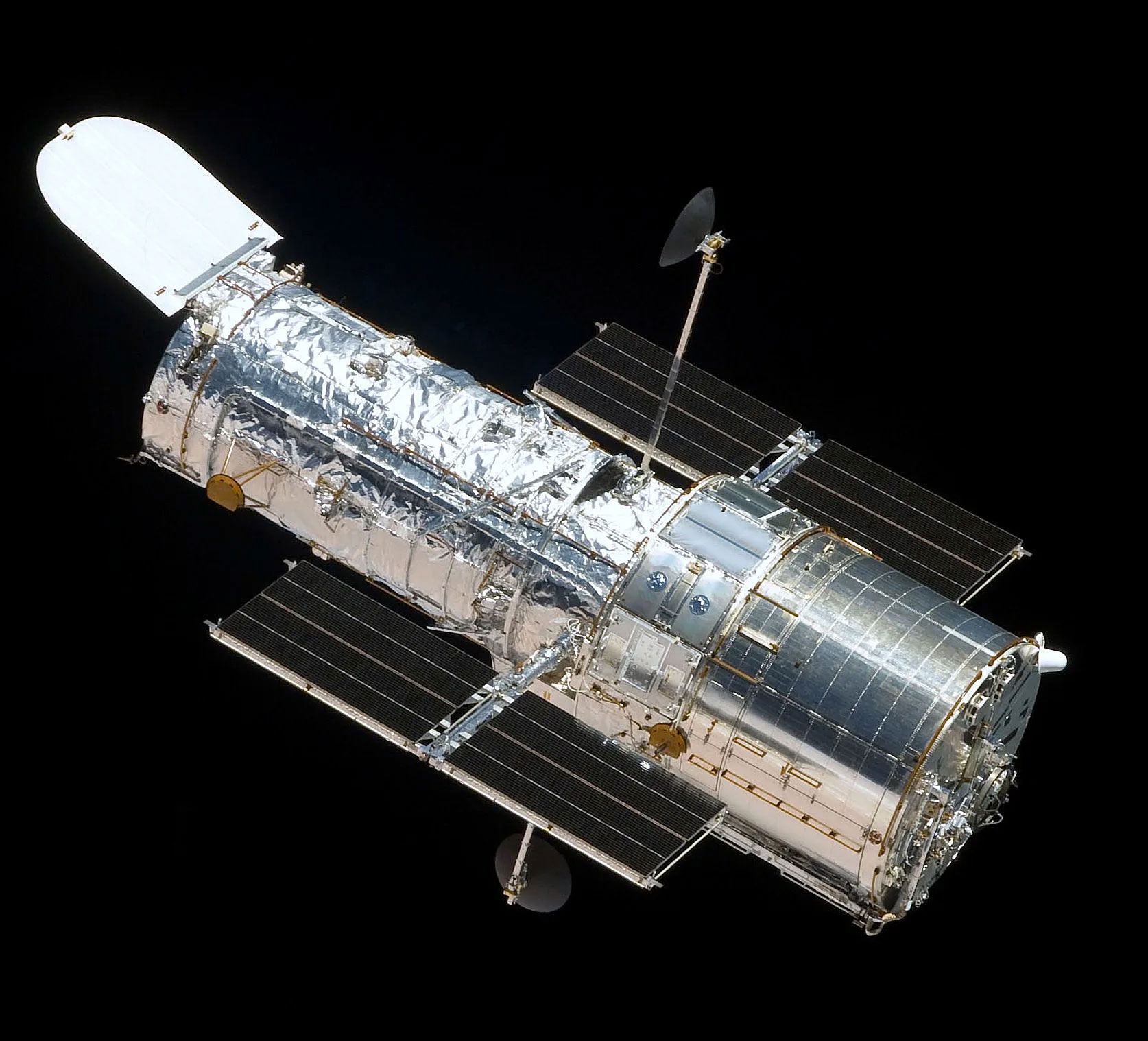Happy Birthday Dr Edwin Hubble! 135th anniversary of the astronomer who gave his name to the Hubble Space Telescope
One of the greatest astronomer's, who changed our entire understanding of the universe, was born 135 years ago today

The best camera deals, reviews, product advice, and unmissable photography news, direct to your inbox!
You are now subscribed
Your newsletter sign-up was successful
Dr Edwin Powell Hubble, who lends his name to the iconic Hubble Space Telescope, was one of the leading astronomers of the twentieth century.
Born 135 years ago today on 20 November 1889, his discoveries in the 1920s, including that countless galaxies exist beyond our own Milky Way, revolutionized our understanding of the universe, and our small place within it. He died in 1959, aged 63.
According to NASA, Hubble was a tall athletic man “who excelled at sports and even coached high school basketball for a short while, and started his professional science career during one of the most exciting eras of astronomy.
“It was 1919, just a few years after Albert Einstein published his theory of general relativity, and bold, new ideas about the universe were fermenting. Hubble was offered a staff position at the Mount Wilson Observatory, which housed the newly commissioned 100-inch Hooker telescope, then the largest telescope in the world. Hubble, it seemed, had the universe placed in his lap.”
When Hubble came on the scene, most astronomers believed that our galaxy was the entire universe.
In 1923, Hubble trained the pioneering Hooker Telescope on a hazy patch of sky known as the Andromeda Nebula. He found that in it were stars just like those within the Milky Way, only dimmer.
One such star was a Cepheid variable, a type of star with a known varying brightness, that can be used to measure distances. From this Hubble deduced that the Andromeda Nebula was not a nearby star cluster, but an entire other galaxy, now called the Andromeda Galaxy.
The best camera deals, reviews, product advice, and unmissable photography news, direct to your inbox!
By the end of the 1920s Hubble had discovered more evidence that convinced most astronomers that the Milky Way galaxy was one of millions of others within the universe, changing our understanding of the universe in the same way Darwin changed our understanding of evolution.
Hubble’s most astonishing discovery however, was made while studying the spectra of 45 galaxies, and in particular of the Doppler velocities of those galaxies relative to our own Milky Way galaxy.
He found that the farther apart galaxies were from each other, the faster they moved away from each other, which told Hubble that the universe expands uniformly in all directions.
Launched in 1990, the Hubble Space Telescope has continued to transform our understanding of the universe, building on the work of its great namesake and carrying on his incredible legacy.
One of the Hubble Space Telescope's most incredible discoveries were the Pillars of Creation in 1995. More recently it discovered a new unusual galaxy, and captured incredible images of the transformation process of a nebula under the influence of baby stars
Take a look at our guides to the best telescopes for astrophotography, the best telescopes for beginners, and the best telescopes for kids.

After graduating from Cardiff University with an Master's Degree in Journalism, Media and Communications Leonie developed a love of photography after taking a year out to travel around the world.
While visiting countries such as Mongolia, Kazakhstan, Bangladesh and Ukraine with her trusty Nikon, Leonie learned how to capture the beauty of these inspiring places, and her photography has accompanied her various freelance travel features.
As well as travel photography Leonie also has a passion for wildlife photography both in the UK and abroad.


